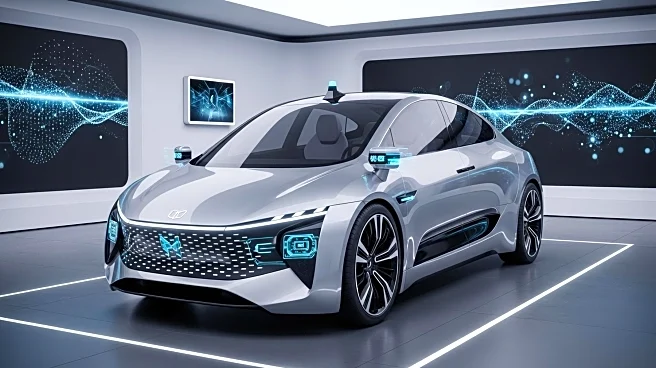What is the story about?
What's Happening?
Japanese automaker Nissan is advancing its self-driving technology as part of efforts to revitalize its struggling auto business. The company is focusing on integrating artificial intelligence into its vehicles to enhance automated driving capabilities. This development comes as Nissan seeks to improve its market position and address challenges within the automotive industry. The initiative is part of a broader strategy to innovate and compete in the growing field of autonomous vehicles, which is becoming increasingly important for automakers worldwide.
Why It's Important?
The development of self-driving technology by Nissan is significant as it represents a strategic move to capture a share of the burgeoning autonomous vehicle market. This technology has the potential to transform transportation, offering safer and more efficient travel options. For Nissan, successful implementation could lead to increased competitiveness and market share, particularly in regions where autonomous driving is gaining traction. The move also reflects broader industry trends towards innovation and technological advancement, which are crucial for automakers facing economic pressures and evolving consumer demands.
What's Next?
Nissan's next steps likely involve further testing and refinement of its self-driving technology to ensure safety and reliability. The company may also seek partnerships or collaborations to accelerate development and deployment. Regulatory approval will be a critical factor, as autonomous vehicles must meet stringent safety standards. Nissan's progress in this area could influence other automakers to enhance their own autonomous driving initiatives, potentially leading to increased competition and innovation in the industry.
Beyond the Headlines
The ethical and legal implications of self-driving technology are significant, as they involve questions of liability and safety. Nissan's advancements may prompt discussions on regulatory frameworks and consumer acceptance. Long-term, the shift towards autonomous vehicles could impact urban planning, reduce traffic congestion, and change the landscape of personal transportation.

















